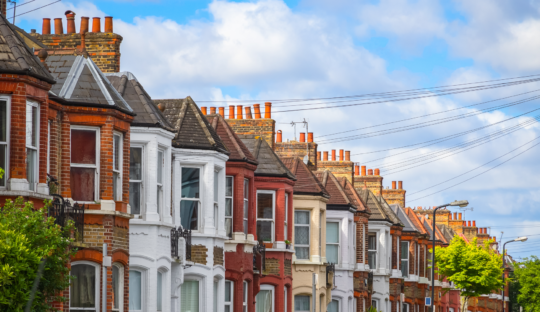In this article
When you’re in the process of buying a house, it’s essential to ask the right questions to ensure you’re making an informed decision.
Purchasing a home is a significant financial commitment, and understanding every aspect of the property and the buying process can help you avoid potential issues down the road.
Here’s a guide on what to ask to help you make the best decision.
What Is the Condition of the Property?
One of the first things to focus on when buying a house is its overall condition.
Whether it’s a newly built home or an older property with history, it’s important to understand what repairs or upgrades might be needed.
Ask about the age of the property and its key features, such as the roof, heating system, and windows.
For properties that have been extended or renovated, check if the necessary permissions were obtained. This can help you avoid future issues, especially with planning permission or building regulations.
Make sure to also find out if any major repairs are required, as this could affect your decision to proceed with the purchase or allow room for negotiation.
What Are the Ongoing Costs of Running the Property?
It’s important to be clear on the financial responsibilities beyond the initial purchase.
Running costs can vary depending on factors like the property’s energy efficiency and local taxes.
Ask the seller for an estimate of the typical monthly costs, including council tax, utilities, and any service charges if the property is a flat.
Additionally, request the Energy Performance Certificate (EPC) to gauge how energy-efficient the home is.
If you’re a first time buyer, an efficient property could save you money on energy bills, whereas a lower rating might mean higher running costs.
Why Is the Owner Selling?
Understanding why the current owner is selling can give you valuable insight. It might be for personal reasons, such as relocating for work, or it could be due to an issue with the property or area.
Ask the seller why they’re moving and how long the property has been on the market. If a house has been for sale for an extended period, it could indicate a problem that has deterred other buyers.
Alternatively, it might provide an opportunity for negotiation on the price.
What Comes With the Property?
When buying a home, it’s essential to clarify exactly what is included in the sale.
Don’t assume that everything you see during the viewing will stay.
Ask whether fixtures such as kitchen appliances, curtains, and light fittings are included. Knowing what’s part of the deal will prevent any misunderstandings later.
It’s also important to confirm the boundaries of the property, as boundary disputes with neighbours can cause complications.
Understanding these details helps ensure a smooth transition into your new home.
What Are the Neighbourhood and Local Amenities Like?
The surrounding area plays a huge role in the long-term satisfaction of your home.
Even if the house is perfect, it’s vital to make sure the neighbourhood meets your needs. Ask about nearby amenities, such as shops, schools, and public transport links.
For those with children, or those planning to have them, researching local school catchment areas is crucial.
You may also want to ask about the general noise level in the area. It’s worth knowing if the property is near a busy road, railway, or if there are any other sources of potential noise disturbance.
Are There Any Legal Concerns With the Property?
Before proceeding, make sure there are no legal complications with the property.
One key question is whether the house is freehold or leasehold. If it’s a leasehold, you’ll need to ask about the length of the lease and any associated service charges or ground rent.
Short leases can be a red flag as they may limit your ability to resell or get a mortgage in the future.
Additionally, enquire about any restrictions on the property, such as listed status or covenants, which could affect your plans to make alterations.
Are There Any Planned Developments in the Area?
It’s important to know what’s happening in the local area, particularly with regard to new developments.
While new infrastructure can be beneficial, certain projects could impact the tranquillity or convenience of your neighbourhood.
Ask about any upcoming developments that might affect your enjoyment of the property, such as new roads, large housing estates, or buildings being constructed nearby.
This information will help you when moving home to decide whether the location will continue to suit your lifestyle in the future.







